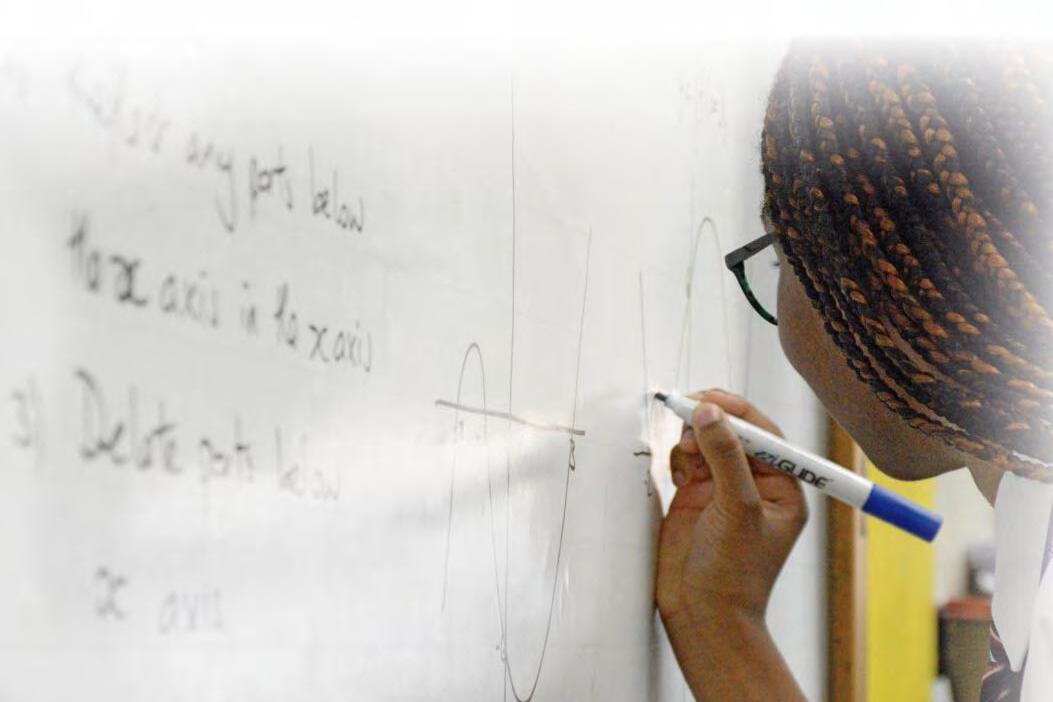
1 minute read
Further Mathematics
Exam Board: Edexcel
Head of Subject: Mr B Chahil
Entry Requirements: Grade 8 or higher at GCSE Mathematics.
What will you learn?
Topic areas studied within Pure Mathematics include complex numbers, which allow the solution of a range of equations that would otherwise have no solutions, through the introduction of ‘imaginary’ numbers, and matrices which consist of grids of numbers that can be used to represent transformations and are used to solve simultaneous equations amongst many other uses.
Other areas of Pure Mathematics are also covered such as polar co-ordinates, differential equations and hyperbolic functions. Each of these builds on earlier topics and encourages the development of a wider understanding of the ways in which mathematical topics are interconnected.
In Mechanics students will learn basic principles of forces and their moments, work and energy, impulse and momentum and centres of mass are used to model various situations, including: rigid bodies in equilibrium; particles moving under gravity, on a surface, in a circle, attached to springs; bodies colliding with direct or oblique impact.
Where will this course lead?
If you
Are Thinking About Studying
Mathematics, engineering or physics at university, you are advised to take Further Mathematics at A Level.
It will assist your study in any of the sciencesubjects and is essential if you are consideringa career in physics or engineering. Some universities give lower offers for Mathematics based degrees if Further Mathematics A Level is included.
Geography
Exam Board: Edexcel
Head of Subject: Ms L Hendry
Entry Requirements:
Grade 6 or above in GCSE Geography.
Grade 6 in Mathematics and English
Language is also advised.
Curriculum content
Paper 1
This will be assessed by a written examination of 2 hours 15 minutes and will count for 30% of the A Level.
Topics covered are:
• Tectonic Processes and Hazards
• Coastal Landscapes and Change
• The Water Cycle and Water Insecurity
• The Carbon Cycle and Energy Security
Paper 2
This will be assessed by a written examination of 2 hours 15 minutes and will count for 30% of the A Level.
Topics covered are:
• Globalisation
• Regenerating Places
• Superpowers
• Migration, Identity and Sovereignty
Paper 3
This will be assessed by a written examination of 2 hours 15 minutes and will count for 20% of the A Level.
This will take the form of a synoptic investigation of a geographical issue.
NEA Independent Investigation
Additionally, students will complete an Independent Investigation, which will account for 20% of the qualification.
Where will this course lead?
Geography is a wide based subject that develops a range of skills and will keep a wide range of options open career wise.
For example, Geographers are planners, work in the environment field as well as following careers in law, property and tourism based industries.








